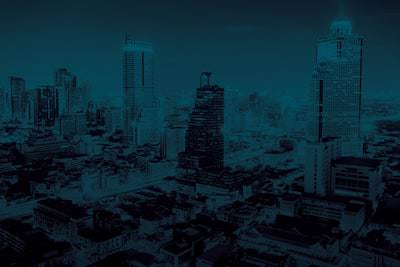When considering how much to spend on business continuity, you'll need to determine how much downtime your contact centre can sustain. Very few call centres can manage a full day of call centre downtime, however some can handle an hour. Generally, the size of organisation, the larger the call centre, the more you stand to lose in terms of agent productivity.
There are two major impacts that could arise if you are impacted by data loss, due to data back up failures. Firstly a high risk of an Ofcom breach. Secondly, squandering leads which impacts your campaign performance. A database contains details about customers, prospects and call backs, core day to day processes which really need to be protected with business continuity protocols.
So what price should you pay to prevent data loss and have business continuity in your contact centre? We've outlined three potential forecasts for data loss, to help you consider your options and the costs associated with restoring data.
One day of lost data with nightly backups
With nightly database backups, in a few hours a database backup can be restored onto a new call centre system server and work can continue. This is why our minimum recommendation for any business is a nightly backup to a remote server, with FTP transfer of call recordings nightly, this is the least costly option.
However, call recordings cannot be restored as quickly as the data due to the size of the files, they would need to be re-added over the subsequent days from the backup source. So this needs to be taken into consideration when planning, even temporary data loss can delay core processes. If the outage happens at the end of the day and the database is restored from the previous night's backup then potentially an entire day can be lost if you are solely relying on nightly database backups.
No data lost with RAID arrays
Using RAID arrays to ensure that a faulty drive does not impact the system at all, in the event of a damaged drive is a strong backup option, as more than one drive mirrors the same data. If one goes down the other is there to seamlessly takeover.
However, there is a premium to be paid for a RAID system due to the increased cost for the hardware. Hostcomm recommends a RAID array and nightly backup to a remote database will offer maximum protection against data loss, along with increased protection against additional drive failure.
To implement this the call centre system would require a main database server configured for RAID1 (the least resource intensive of the RAID types), this would be in a cluster and with a slave database. The chances of a sustained outage and data loss are reduced considerably if not eliminated.
Synchronising to a CRM for low impact of call centre system failure
Synchronising to a CRM system can reduce the impact of a call centre database failure. This can be set up to run automatically as a background task or can be done by the agents manually when a call record is "popped" to them. This method works well if raw data is kept on the call centre server, whilst human contact records are saved to the CRM system. This enables you to have two sources of live data incase of any issues or unexpected data loss. With CRM synchronisation business continuity is maintained by being able to access the data on your CRM in the event of a server failure and vice versa, in the event of a CRM failure.
Choosing the right option for your organisation
Ultimately it comes down to the size of your organisation and the risk you can afford to take, if any at all. For most organisations nightly backups may make the most sense and should be fundamental to every business continuity plan. The cost to implement and maintain RAID arrays might outweigh the cost of one days lost data and also the additional days backing-up call records should be taken into account.
A consideration should be had for customer service levels. Retrieving lost information may be time-consuming, difficult or nearly enough impossible - can you afford to loose valuable data, even for an hour? If not then a RAID array or CRM integration is the wise choice, this enables you to have two live sources of data backed-up on your server and within your CRM.
If you are still concerned about the cost of business continuity in the event of a server failure then a cloud contact centre might be the solution for you. By hosting your data in the cloud you can migrate the maintenance of your servers and hardware to a trusted partner, control costs and create a better customer experience to your client base. It can also help you overcome limitations and risk posed by legacy systems. But remember that your cloud contact centre provider must have clear protocols and processes for data management and backups. Without visibility of this, Your business continuity could be impacted.
Tell us your requirements and together we’ll work through your business processes to determine if a cloud contact centre is right for you.














